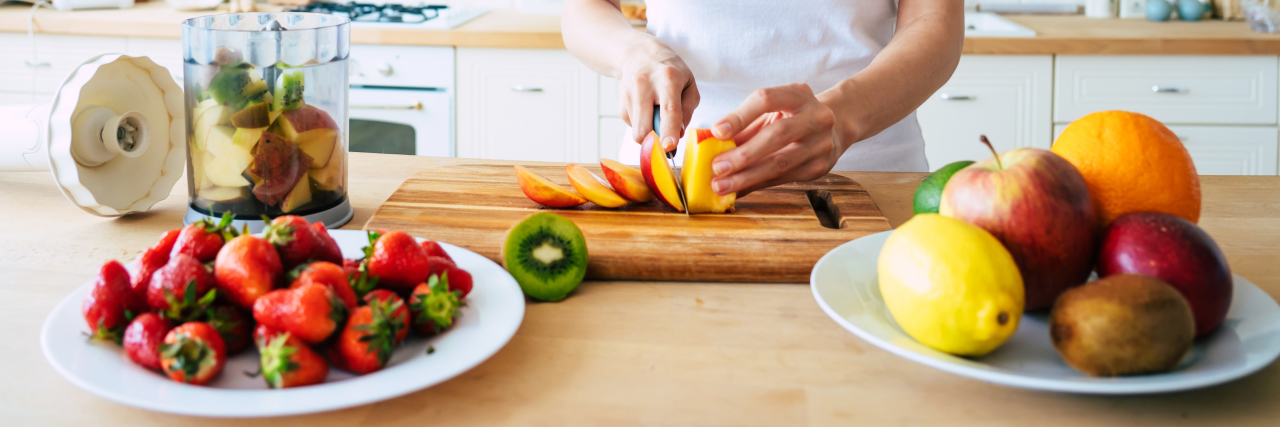How Parents of Kids With Disabilities Can Practice Self-Care During COVID-19
Editor's Note
Join The Mighty’s Coronavirus group to connect with other Mighties living through the pandemic. Read the latest updates, share helpful tips, or give and receive virtual support.
As a mother of a child on the autism spectrum, I’ve learned that self-care must be a high priority. Early on in my parenting journey, I realized if I didn’t fill my needs first, I couldn’t fill the significant needs of my son. In my book “It Takes a Village: Get Your Hands Dirty and Build Yours From the Ground Up,” the first chapter focuses on just that.
However, given the circumstances of the current pandemic, self-care has never been more challenging. Many of our children are home from school. We are assisting them in distance learning while we work from home, leaving less downtime. We can’t meet a friend for a pedicure. Most gyms are closed or have many restrictions on use. Many places of worship remain empty. This health crisis is also quickly becoming an emotional crisis, and our outlets for self-care are nearly nonexistent.
Understanding the importance of self-care for caregivers, we must acclimate to this temporary new norm and modify what our self-care used to look like into what it can look like.
Physical Health
Physical Activity
Without access to gyms or group sports, lack of time or childcare, or feeling emotionally overwhelmed, many parents of kids with disabilities are not engaging in the type of physical activity they were before the pandemic. The pandemic will eventually pass, but waiting until it does to prioritize your physical health can have serious side effects. Lack of physical activity can increase your risk of disease and impact your emotional well-being.
So how can you increase your physical activity when you may not have much time or access to the activities you used to do? Start by making small tweaks in your daily routines. If you have a staircase in your home, take 10 minutes to go up and down them. While your coffee is brewing, do push-ups. While you’re waiting for a pot of water to boil, do wall squats. Use any time that you are “waiting” for anything to add physical activity. Also, get outside. Play with your kids in the backyard or go for a walk. In addition, there are tons of free videos on YouTube for every fitness level in almost every fitness genre, from yoga to pilates to kickboxing.
Nutrition
Equally as important to your physical health as physical activity is your nutrition. Minimizing exposure to the virus may mean making fewer trips to the grocery store, which may also mean less access to fresh produce. Low sodium canned and frozen fruits and vegetables are acceptable substitutes. When you do have access to fresh produce, prepare it ahead of time and refrigerate and freeze portions, so they are readily available. Also, anxiety about the pandemic may be causing many parents to stress-eat unhealthy foods they would usually avoid. In just a few weeks, new habits form, so we must guard ourselves against creating bad ones. Use this time to try new healthy recipes as opposed to using this time to learn to bake unhealthy desserts.
Emotional/Social Health
According to an article by Jane Brody of the New York Times, “People who are chronically lacking in social contacts are more likely to experience elevated levels of stress and inflammation. These, in turn, can undermine the well-being of nearly every bodily system, including the brain.” She goes on to state that a lack of social interaction is as unhealthy for our bodies as obesity, smoking, and a lack of exercise.
At this unprecedented time in history, our emotional well-being is at significant risk, and our ability to combat that risk is challenged. We can’t visit friends, gather at community events, host a birthday party, attend a worship service, or cheer on our favorite sports team with thousands of other fans. Isolation can lead to depression, anxiety, extreme weight gain or extreme weight loss, and currently, most of the world remains isolated.
Rethinking how we at this moment keep our emotional health in check is crucial not only to our well-being but also to our children’s. They need us now more than ever because their world has been disrupted, too.
Rather than focusing on what you can’t do, focus on what you can. You can call friends. You can create virtual social gatherings using tools like Zoom. You can read for pleasure or listen to audiobooks. You can turn off the news and turn on something that makes you laugh. You can play board games with your family. You can do projects around your home you’ve been neglecting. You can take an online class to learn something new. You can send cards and letters to first responders and health care workers. Doing these types of things will help to shift your mindset from feelings of isolation and loneliness to feelings of community and hope.
Being the parent of a child with autism is a big job on a good day, much less in the middle of a global pandemic. Making self-care a priority, especially now, is vital so you can continue to fill that important role. You got this!
“We need to take care of our own needs first. Then we can give from our abundance.” — Jennifer Louden
For more on the coronavirus, check out the following stories from our autism community:
- I’m Autistic and This CDC Equation Says My Life Is Less Valuable If I Get COVID-19
- One Reason the COVID-19 Pandemic Might Be Extra Challenging for Autistic Adults
- What to Do When Your Child on the Autism Spectrum’s Routine Is Disrupted by the Coronavirus
- 5 Reasons to Try Telehealth Services for Your Autistic Child During the COVID-19 Pandemic
Getty image by Povozniuk.

